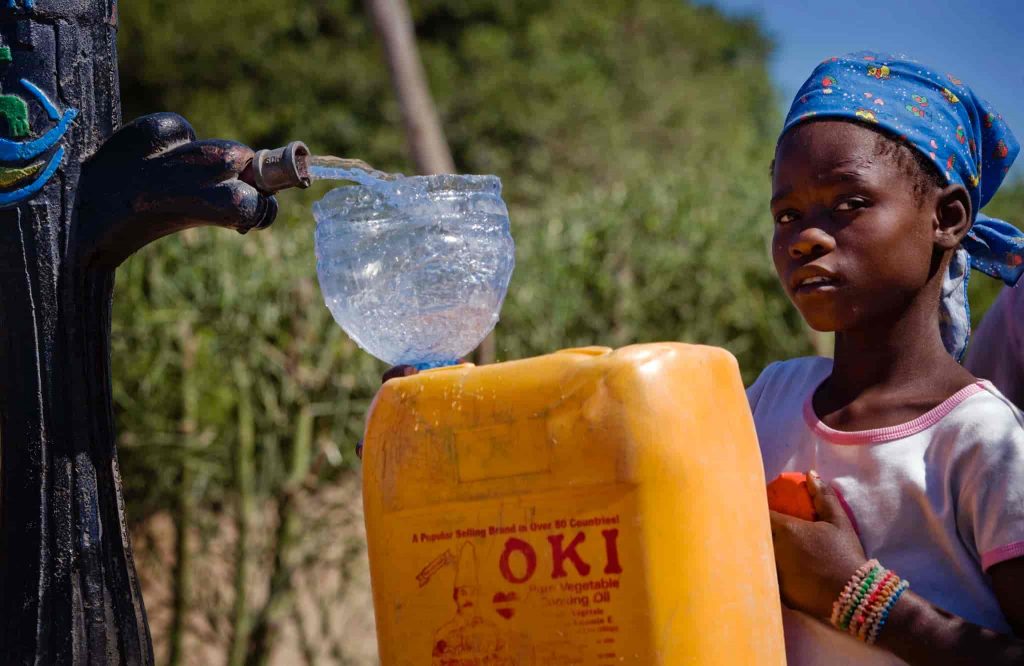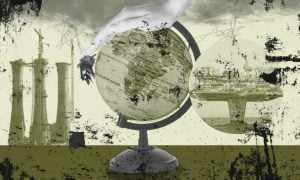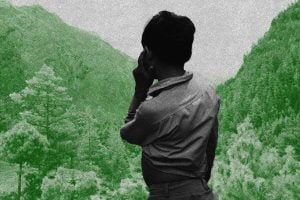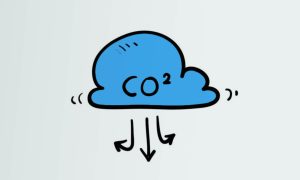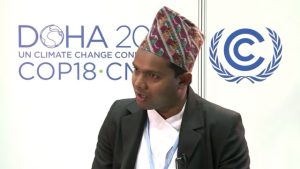“Water, water, every where,
And all the boards did shrink;
Water, water, every where,
Nor any drop to drink.”
The above quote from The Rime of the Ancient Mariner, by Samuel Taylor Coleridge describes part of the curse inflicted on the mariner and his crew for his having shot the albatross whose noble presence had been bestowing a blessing to their voyage. In many ways, most of our leaders are like that mariner, killing Mother Earth who guarantees our wellbeing: only that these leaders have been doing it more slowly. We are polluting the air, the land and the waters, and even though we can see the curse materialising before our very eyes, we carry on, regardless. Today I will focus on Water.
There are countless ways in which water is being abused. The seas are drowning in plastic and other forms of pollution, while rivers, lakes and groundwater are being contaminated with chemical and other waste, as well as being exploited out of existence for human consumption, industry, powerplants and irrigation. Moreover, ironically, as life-sustaining water dwindles, the oceans are rising due to the melting ice caps that are warming because of climate change. Indeed, for many of us, it may well be a case of there being water everywhere, with not a drop of it to drink!
Still, if any of this is a surprise to anyone, it means that they really have not been paying enough attention. What is perhaps less obvious is the tsunami of conflict that shortages of clean drinking water are likely to generate. In fact, tensions are already running high in some places. Of course, such tensions are nothing new and have been rampant for centuries; the difference, however, is that the situation is becoming more and more precarious; desperate, even.
The deteriorating situation is also putting pressure on delicate treaties that have managed to ease hostilities in the past, such as the 1960 Indus Waters Treaty, brokered by the World Bank between India and Pakistan, which settled issues around the control of waters flowing through both territories.
Water Wars
2020 witnessed hordes of people scrambling for toilet paper as the must-have trophy of the COVID-19 panic buying frenzy. Water is so much more valuable, since not only does it help keep us clean, it also sustains us. The discord that accompanies threatened supplies is, therefore, not hard to imagine.
Water wars can be triggered by various water-related problems and they can be waged on an intrastate level or an interstate one. The former has to do with conflicts that involve parties within the same state or country, while the latter refers to hostilities between neighbouring countries and often concerns disagreements around boundaries, as well as issues on consumption.
Intrastate Confrontations
The California Water Wars offer a good example of an intrastate conflict.
These were a series of conflicts between the city of Los Angeles and farmers and ranchers whose livelihood revolved around Owens Lake. As the spread of Los Angeles began to surge, so did its water requirements. In 1913, therefore, an aqueduct was built that siphoned off the water from the Owens River and Lake to the city. As the water became scarcer for the locals who depended on it, they began to do all they could to stop the irreparable damage that was being inflicted on their land. By 1924, realising that their legitimate protests had been paralysed by insidious legal webs, they tried to sabotage the aqueduct in a desperate attempt to save their community. That too failed and by 1926 the land had all but dried up.
Modern governments tend to avoid favouring one community within national borders to the detriment of others. However, this is not always the case. Sometimes multinational organisations or even national industries, come first. We witness these abuses periodically: pipelines ripping through the livelihoods and mores of local communities; legal and illegal logging destroying the habitats of people and wildlife alike; developers eating into rural areas and squeezing agrarian communities out…
Of course, water, as a commodity that is becoming scarcer, is no exception when it comes to causing discord and displacements. Coca-Cola, for instance has been accused of exploiting water resources in developing countries, such as India, Mexico and El Salvador, where production costs are cheaper. War on Want charged the company of “dehydrating communities in its pursuit of water resources to feed its own plants, drying up farmers’ wells and destroying local agriculture.” In 2016, Coca-Cola countered such criticisms with a full-page advertisement in The New York Times, stating that: “for every drop we use, we give one back”. This claim has been found to be grossly exaggerated, unless, that is, they were referring to urine, which, of course, is 95% water!
The Water War of Cochabamba is another recent example. This was the culmination of a series of protests in Bolivia’s fourth largest city following the privatisation of water, which resulted in arrests and a few fatalities. On this occasion, the locals won the battle and the privatisation agreement was revoked.
There are, however, current situations that are still more dangerous. As a consequence of mismanagement, nepotism and corruption, Yemen, for instance, has been suffering severe water shortages that are fuelling the humanitarian crisis and hostilities there. Similar crises and clashes, which are also exacerbated by frequent droughts, are taking place in Somalia and sometimes pushing desperate citizens into the hands of the Al-Qaeda-affiliated Al Shabaab terrorists.
Nevertheless, the conflicts that are likely to prove destructive on a massive scale are those that pitch countries and states against each other.
Interstate Timebombs
While disputes around maritime borders generally concern fishing rights and national security, the problems facing countries that share a river or a lake usually concern consumption. With countries that share a river, it is common for those that are downstream to accuse upstream nations of exploiting the river to such an extent, that only a trickle is left to flow into their own territory.
Although countries that border lakes do not have the challenge of one country having topographical precedence over another, the issues are very similar, except that demarcation lines and fishing rights may also exacerbate the problem, as is the case with Malawi and Tanzania and their dispute over Lake Malawi/Lake Nyasa.
What is certain is that with water availability becoming scarcer due to pollution and unpredictable precipitation, the disputes are bound to become more heated and critical.
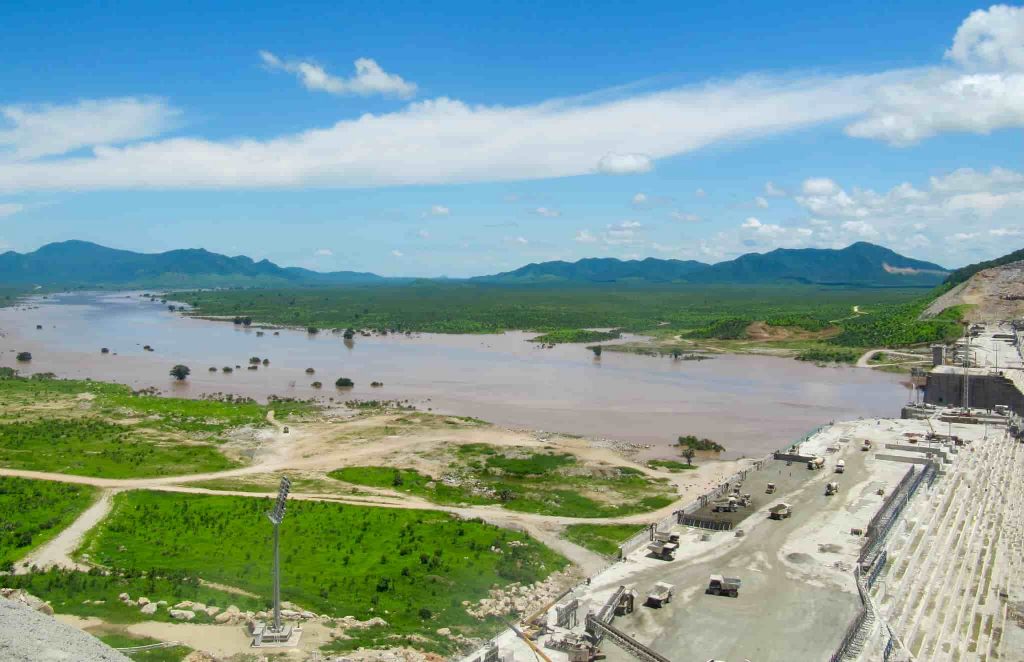
A Typical Example: The Grand Ethiopian Renaissance Dam
In 1979, President Anwar Sadat of Egypt had said that if ever Egypt had to go to war again, it would be over water. Sure enough, Egypt is one of the many countries in a diplomatic row with a neighbouring state because of water. Since 2011, Ethiopia has been building the Grand Ethiopian Renaissance Dam, which, when completed, will be the largest hydroelectric powerplant in Africa. The dam is nearing completion, but may still take several years to fill up. The time this will take will not only depend on precipitation, which is becoming increasingly unreliable due to climate change, but also on agreements with Egypt and Sudan. These negotiations are not going well.
Part of the problem is linked to a number of colonial era treaties that favoured Egypt. The last of these, signed in 1959, secured for Egypt 66% of the Nile’s water flow, with Sudan benefitting next. Egypt is unwilling to renounce these privileges that were orchestrated by British authorities, and is still insisting on the lion’s share. Negotiations between Egypt, Sudan and Ethiopia had been progressing, but not well enough according to Egyptian negotiators, so they invited the United States and the World Bank to mediate. In an interview with The Reporter, Sileshi Bekele, the Ethiopian Minister for Water accused the Americans of trying to take over the negotiations:
“At first, they agreed to remain as observers, but later assumed a meditator’s role and then acted as a decision maker for us.”
Ethiopia is therefore accusing the US of bias and refusing to sign the so-called agreement drafted by them. They are also planning to plough ahead with their plans.
Similar disputes have been brewing in other parts of the world, such as those in the Mekong River basin involving China, Laos, Cambodia, Vietnam and Thailand.
The Middle East and the Rivers of Paradise
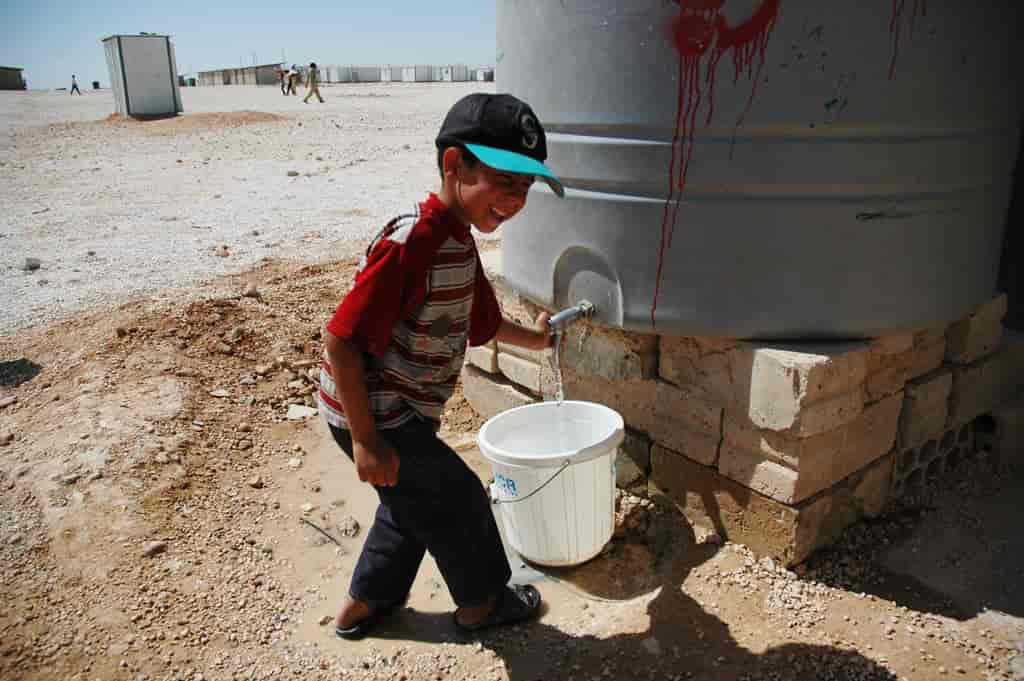
Seeing as the Middle East contains 1% of the world’s fresh water, which is meant to supply 5% of the world’s population, tensions are inevitable. There are conflicts between Turkey, Iraq, Iran and Syria over the use of Tigris and Euphrates rivers, as well as tensions between Iran and Afghanistan over the Helmand River and the Hari River. These countries are already struggling with a host of other geopolitical issues, so it may only take a bit of water to light the fuse that will ignite even more dire confrontations. The situation in Palestine is even more desperate. A 2016 Briefing by the European Parliament focussed on the issue and detailed the humanitarian cost:
“While Israelis have unlimited running water year-round, the hundreds of thousands of other residents in the territories suffer from water shortages that drastically affect their health and economic wellbeing. According to the World Bank, these residents have the lowest access to fresh water resources by regional standards. While the land in the West Bank and Gaza is arable, inadequate water supply has contributed to soil degradation and desertification. In addition, economic disparities, lack of substantial and sufficient infrastructure and the lack of effective management of water resources have led to substantial depletion and contamination of water resources which further aggravate the problem and pose risks to the humanitarian and environmental state of the region.”
Where the Greatest Danger Lies
There is no doubt that fighting for limited resources is a disastrous prospect, but there is an even worse scenario: there not being anything left to fight for. This would be water’s ultimate revenge. Water is at risk from overuse, climate change, pollution and mismanagement. Like Midas, we consider ourselves clever when we turn it into gold, but as Midas learned, the hard way, one cannot ingest gold. Desertification is becoming a serious problem in many countries, from large ones, like Australia, to small ones that find it even harder to cope, such as Zambia. Human activity as a whole is responsible and the water supplies are running out.
The virtual obliteration of the Aral Sea, until recently the fourth biggest lake in the world, offers a stark warning. In 1960, the lake consisted of an area of about 68,000 km² and a volume of 1,100 km³, but irrigation projects started by the Soviet government that wanted to become a lead exporter of cotton, or “white gold” as it was nicknamed, began to bleed the lake dry; a policy continued by Uzbekistan after the end of the Soviet Union in 1991.
The lake gradually split into four smaller lakes and with time, these too started to disappear. Part of the lake is now the Aralkum Desert. The Aral Sea is a textbook example of ecosystem collapse and UNESCO has added the documents relating to its demise to the Memory of World Register as a testament of this “environmental tragedy”.
Turning the tide
All is not lost. There is much that can be done to avert disaster. Of course, the first thing is to tackle climate change by reducing our CO2 emissions. Another lesson COVID -19 is teaching us, is that in just a few weeks of shutdown, the world is starting to breathe again. The WHO estimates that 4.6 million people die each year from causes directly linked to pollution. Whether COVID-19 will match or surpass this death toll is yet to be seen, but the point is that we are hardly even prepared to inconvenience our careless consumeristic ways to address this and all the other plagues that follow in the wake of climate change, such as droughts, floods, wildfires, hurricanes and rising sea levels. Water is a necessity and according to the United Nations, a human right. We cannot afford to lose it.
Second, our water resources need to be managed more sensibly and governed by sound and informed conventions. All water intensive practices must be included in these treaties, as well as all forms of water pollution. Penalties for infringement should be severe and rigorously enforced.
Third, recycling should be considered where possible in order to maximise availability. Some countries, like Saudi Arabia, have resorted to desalinating seawater, mostly by the process of reverse osmosis. These approaches can help in the short term, or for limited consumption needs, as in small islands, such as Malta. However, on the one hand, the process requires a lot of energy, while on the other, the by-product, which is brine, causes environmental problems when released back into the sea. These challenges are not insurmountable and perhaps more research needs to be done to allow this process to be more environmentally friendly.
Fourth, curbing the meat industry would help ease water demand considerably. According to PETA:
“Nearly half of all the water used in the U.S. goes to raising animals for food. It takes more than 2,400 gallons of water to produce just 1 pound of meat, but it takes just 25 gallons to grow 1 pound of wheat. You save more water by not eating a pound of meat than you do by not showering for six months!”
Of course, the bovine meat industry is also one of the worst offenders when it comes to greenhouse gas emissions, so tackling this will also help with the first point on climate change.
Finally, we can all do our bit to help save water: from not leaving the tap running while brushing our teeth, to finding ways of collecting rainwater for our gardening needs. If you have any useful ideas in this respect please let us know and we will publish then in the next issue of this magazine…
So, it does not have to be all gloom and doom. However, it will take people like you, who bothered to read this article right to the end, to carry on and ensure more gets done to save this vital resource.



